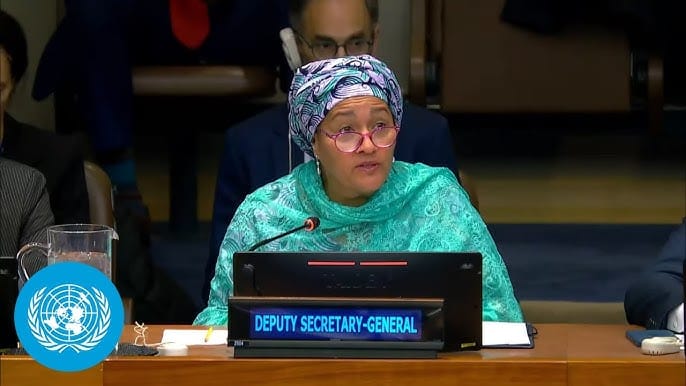Deputy Secretary-General Urges Action to ‘Break Cycle of Debt’

UN Deputy Secretary-General Amina Mohammed addressed a special event in Sevilla, Spain, focusing on the urgent need for debt sustainability in developing countries. She highlighted the significant challenges these nations face, including a looming debt crisis exacerbated by global economic slowdowns and climate change. Mohammed emphasized that while borrowing is essential for development, many low-income countries are struggling under the weight of debt, with billions spending more on interest than on vital services like health and education. She called for collective action to address these issues and proposed a framework for moving forward.
Challenges Facing Developing Countries
In her remarks, Amina Mohammed outlined the formidable challenges that developing countries are currently grappling with. Ten years after the adoption of the Sustainable Development Goals (SDGs), these nations are experiencing a slowdown in global growth, the threat of trade wars, and ongoing shocks from climate change and conflict. However, the most pressing issue is the escalating debt crisis. Mohammed pointed out that borrowing is crucial for development, allowing governments to invest in their citizens’ futures. This is particularly vital as countries are urged to make significant investments to transition to greener economies and establish modern digital infrastructures.
Despite the importance of borrowing, the current landscape is troubling. Over two-thirds of low-income countries are either in debt distress or at a high risk of it. Alarmingly, 3.4 billion people reside in nations where interest payments on debt exceed spending on essential services like health and education. This situation highlights the urgent need for a reevaluation of how borrowing is managed and utilized in these countries.
The Silent Crisis
Mohammed described the debt crisis as a “silent crisis” for two main reasons. Firstly, its effects are largely confined to developing nations and do not pose an immediate threat to the economies of advanced countries. This has led to a lack of urgency among global policymakers, many of whom are reluctant to acknowledge the severity of the situation. There is a prevailing hope that the crisis might resolve itself if interest rates decrease, which has contributed to the inaction.
However, she noted that there are signs of change. Recent months have seen the launch of several initiatives aimed at addressing the debt crisis, including the African Leaders Debt Relief Initiative and the Secretary-General’s Expert Group on Debt. These efforts are beginning to draw attention to the shortcomings of the current debt architecture and the negative impacts it has on developing countries. The Sevilla Conference and its outcome document, along with the ongoing work of the G20, are crucial in bringing these issues to the forefront of global discussions.
Proposed Actions for Change
To combat the debt crisis effectively, Mohammed proposed three key actions that the international community must undertake. First, she emphasized the need to consolidate messages and recommendations. There is a wealth of analyses available, but it is essential to unify these insights into a coherent strategy. This includes integrating recommendations from the Sevilla outcome document into the G20 discussions and the upcoming COP30 conference.
Second, she called for collective responsibility among nations. Spain, for example, has demonstrated leadership in promoting debt swaps and pauses. The UN is prepared to support member states in establishing a platform for borrowers to share experiences and coordinate their approaches, thereby amplifying the voices of borrower countries.
Finally, Mohammed stressed the importance of expanding the coalition working towards debt sustainability. This involves garnering support from key members of international financial institutions and mobilizing civil society, as envisioned by the Jubilee campaign. By taking these steps, she believes that the cycle of debt can be broken, paving the way for a new era of debt sustainability for all nations.
Observer Voice is the one stop site for National, International news, Sports, Editor’s Choice, Art/culture contents, Quotes and much more. We also cover historical contents. Historical contents includes World History, Indian History, and what happened today. The website also covers Entertainment across the India and World.

